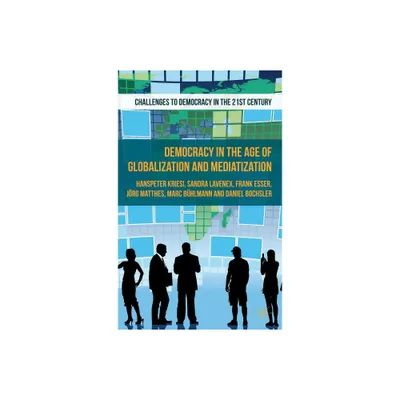Home
Retheorizing Race and Whiteness the 21st Century: Changes Challenges
Loading Inventory...
Barnes and Noble
Retheorizing Race and Whiteness the 21st Century: Changes Challenges
Current price: $180.00


Barnes and Noble
Retheorizing Race and Whiteness the 21st Century: Changes Challenges
Current price: $180.00
Loading Inventory...
Size: Hardcover
*Product Information may vary - to confirm product availability, pricing, and additional information please contact Barnes and Noble
Retheorizing Race and Whiteness in the 21st Century
examines the role whiteness and white identities play in framing and reworking racial categories, hierarchies and boundaries within the context of nation, class, gender and immigration. It takes as its theoretical starting point the understanding that whiteness is not, and nor has it ever been, a static uniform category of social identification. The scholarship in this book uses new empirical studies to show whiteness as a multiplicity of identities that are historically grounded, class specific, politically manipulated and gendered social relations that inhabit local custom and national sentiment.
Contributors to this book examine a wide range of issues, yet all chapters are linked by one common denominator: they examine how power and oppression are articulated, redefined and asserted through various political discourses and cultural practices that privilege whiteness even when the prerogatives of the dominant group are contested.
is an important new contribution to the study of whiteness for academics, researchers, and advanced students of Ethnic Studies, Sociology, Political Science, and Ethnography.
This book was originally published as a special issue of
Ethnic and Racial Studies
.
examines the role whiteness and white identities play in framing and reworking racial categories, hierarchies and boundaries within the context of nation, class, gender and immigration. It takes as its theoretical starting point the understanding that whiteness is not, and nor has it ever been, a static uniform category of social identification. The scholarship in this book uses new empirical studies to show whiteness as a multiplicity of identities that are historically grounded, class specific, politically manipulated and gendered social relations that inhabit local custom and national sentiment.
Contributors to this book examine a wide range of issues, yet all chapters are linked by one common denominator: they examine how power and oppression are articulated, redefined and asserted through various political discourses and cultural practices that privilege whiteness even when the prerogatives of the dominant group are contested.
is an important new contribution to the study of whiteness for academics, researchers, and advanced students of Ethnic Studies, Sociology, Political Science, and Ethnography.
This book was originally published as a special issue of
Ethnic and Racial Studies
.


















